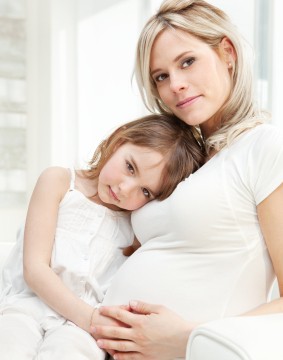More and more women are having babies later in life. Whether it be for career or personal reasons, 1 in 5 American women now have their first baby after age 35, according to data from the March of Dimes, and in the medical community, there is a well-known stigma that comes with having a baby at 35.
If you are over this milestone and expecting, you’re classified as having advanced maternal age, �and your pregnancy falls into the high-risk category. Still, having a baby at 35 may not be directly related to significant problems, so there is no need to immediately panic once you blow out the candles on your 35th birthday. But, it is important to educate yourself on what 35 really means in terms of your reproductive health.

Having a Baby at 35: A Decline in Fertility
Fertility declines as you age. According to the American Society of Reproductive Medicine, a woman’s fertility begins to decline in their 20s, but there is a dramatic when having a baby at 35. This means you may ovulate less regularly (even though many women continue to have regular periods), and the quality of your eggs may also decline with age. Overall, it is more difficult (but not impossible) for you to get pregnant, and it will likely take longer. Additionally, when women over 35 do ovulate, there is a higher chance they will release more than one egg at a time. For this reason, it’s more common for women having a baby at 35 to deliver twins or triplets.
At this age, women are also more likely to develop certain reproductive problems that can make it more difficult for them to conceive. This includes fibroids, blocked fallopian tubes and endometriosis.
Higher Miscarriage When Having a Baby at 35